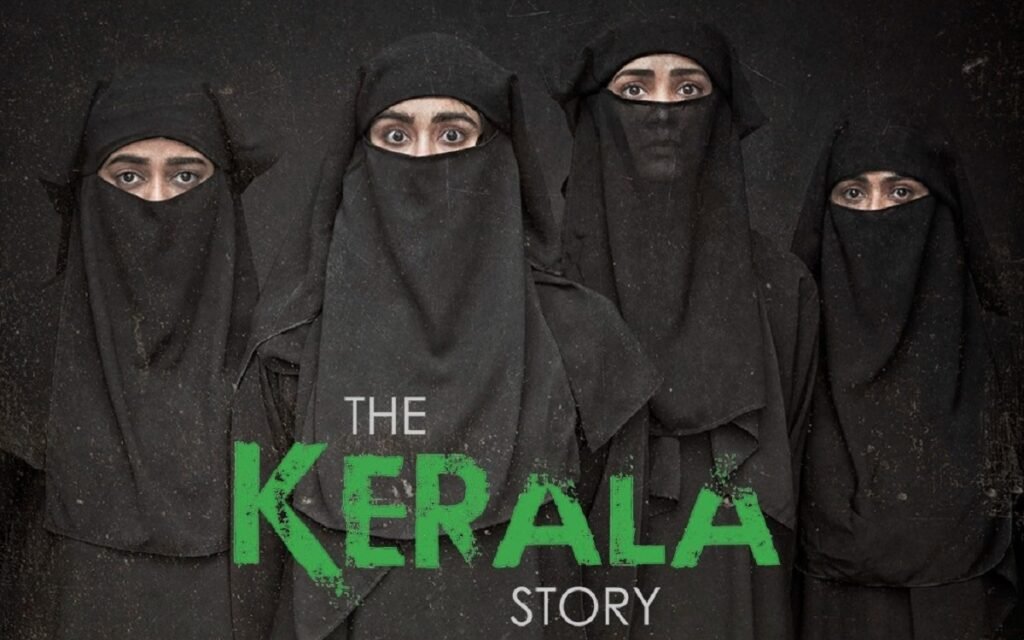The timing of the movie's release was craftily aligned with assembly elections in Karnataka so that the Bharatiya Janata Party (BJP) and its offshoots would be able to sell their plank of "Hindus in danger" and whipping up anti-Muslim sentiments in the southern state on the lines of what they did with "The Kashmir Files" which coincided with the Uttar Pradesh assembly elections.
Team Clarion
NEW DELHI — Bollywood churns out roughly 2,000 films every year. Every film, whether in Hindi or in any other language, can sway public opinion. Films alter the way people approach their existence and society in the course of their lives. They can change the mindset, values, and beliefs of the viewers when they start to make everyday decisions and approach issues in a new manner. The general perception is that a moviegoer believes that what he was watching on the silver screen was based on the gospel’s truth, especially when a movie pointedly claims to be inspired by a true story.
In laying that claim, filmmakers often take cinematic liberty to dramatise situations which may not have happened at all! The demarcation line is obviously blurred for the movie buffs and whatever was on the screen becomes a reflection of reality for them.
The makers of “The Kerala Story” have claimed that the movie was based on true stories they diligently gelled into a can of about three viewing hours. But after the matter reached Kerala High Court and a stiff challenge was mounted, the filmmakers were compelled to remove the teaser from the Internet as it made false claims that 32,000 girls in Kerala were converted to Islam and sent to IS.
The timing of the movie’s release was craftily aligned with assembly elections in Karnataka so that the Bharatiya Janata Party (BJP) and its offshoots would be able to sell their plank of “Hindus in danger” and whipping up anti-Muslim sentiments in the southern state on the lines of what they did with “The Kashmir Files” which coincided with the Uttar Pradesh assembly elections. The BJP reaped rich dividends from the hype created by the film and was able to hold on to power, albeit with a reduced number of seats.
“The Kerala Story” euphoria did not affect the political fortunes of the BJP in Karnataka where it had to hand over power to a resurgent Congress. But, the movie has clearly emboldened the Hindutva protagonists elsewhere. The hooligans, in the name of protecting the country’s Hindus, have unleashed a reign of terror on the Muslim community.
After the release of the controversial movie ‘The Kerala Story’, directed by Sudipto Sen and produced by Vipul Shah, many incidents of fear-mongering and violence have been reported from different parts of the country. Disturbing videos of attacks on Muslims have gone viral on social media.
A video shows a Muslim medical student in Jammu allegedly beaten up with an iron rod by fellow students due to an altercation over the said movie. He sustained head injuries and had to get stitches for the same.
This was reported on May 15 by a Twitter account called @HindutvaWatch. It is a research initiative to monitor reports of attacks on members of religious minorities in India.
Another video came to the fore on May 6 where some people, presumably outside a movie hall, were enraged and speaking against Muslims. A man, being interviewed on camera said, “If you (Muslims) cheat Hindus and do something wrong against even one Hindu, you will have to leave this country. We will beat you up if you don’t leave our Hindu women alone. If any Muslim even looks at a Hindu woman, he should be killed there itself. They are a threat to us”. It is unclear where this video was recorded.
Another reaction video surfaced on May 9. A woman is shown interviewing some people coming out of the cinema hall. “How was the movie,” the reporter asked a woman. “I am very scared,” she said.
The moviegoer woman then asked the reporter her name. “Alisha”, she replied. The woman confirmed if she was a Hindu, to which she replied in the affirmative. Then the woman said, “It was very nice but I am scared. Everyone should watch it. Every Hindu should watch it. I got scared looking at Muslims”.
These are just the incidents that have so far been recorded and somehow landed up on the internet. There are certainly many more of such undocumented incidents where animosity against the Muslim community must have increased, making room for hatred against them. Most of the time this animosity is unspoken (even hidden) as it influences the mind of a person who leaves the cinema hall after viewing the movie. It is these unspoken impressions that propaganda effectively hardens to then incites hatred against a community. It is this potential for creating lasting feelings of disharmony that have led some governments to reach out to the courts for a redressal.
It is now crystal clear that the movie has become a cause for violence, a cause for disturbance in public order. It is now imperative that the intelligentsia, academics, social activists, and secularists need to step in and prevent the country from sliding into an abyss from which it would be difficult for it to come up with an intact psyche.

